Individual, groups, institutions, world
Virtual coffee with a student 2021-10-20
revised 2023-01-05
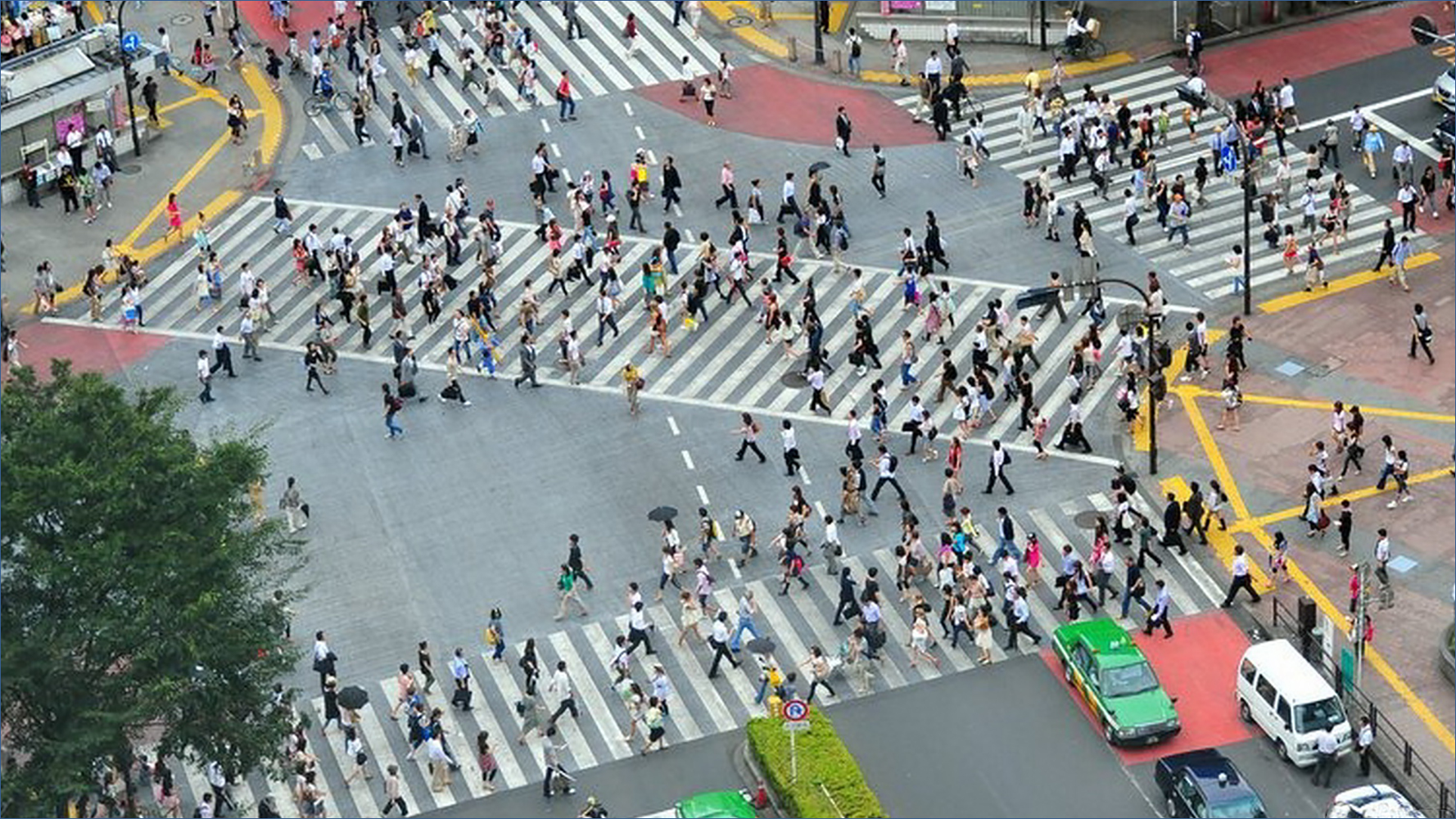
The last half of the 20th century, 1950 to 2000, might be the most comfortable the human world ever enjoys. It came from the positive fruits of the Age of Enlightenment, the European movement to advance human thinking and human industry 400 years ago — peace, democracy, human medical health, all the material enjoyment that human society wanted.
The first section of the 21st century, 2000 to 2020, however, reverses to negative consequences of the Age of Enlightenment movement, a movement exploited indiscriminately for too long. Technology and medical health explosion brought the world human population from 2.5 billion in 1950 to 7.5 billion in 2020; population explosion depletes the Earth’s resources, nature untouched by humans disappears, environmental pollution by humans abounds, climate change now threatens humanity with apocalypse. Refugees overwhelm the world’s rich countries. Society’s people fight for entitlement, until democracy, the most cherished system created by the Age of Enlightenment, is under threat of collapse.
Unchecked human prosperity of the years 1950 to 2000 is not eternal but like everything in the big universe is changed under pressure. It is readable, that the 21st century is coming to a new human era of changed perspective.
This article offers a view of the world we are in. Especially, this article offers a view how an individual person may have a sense of scope and direction in the world we are in, and a sense of scope and direction in the individual’s life.
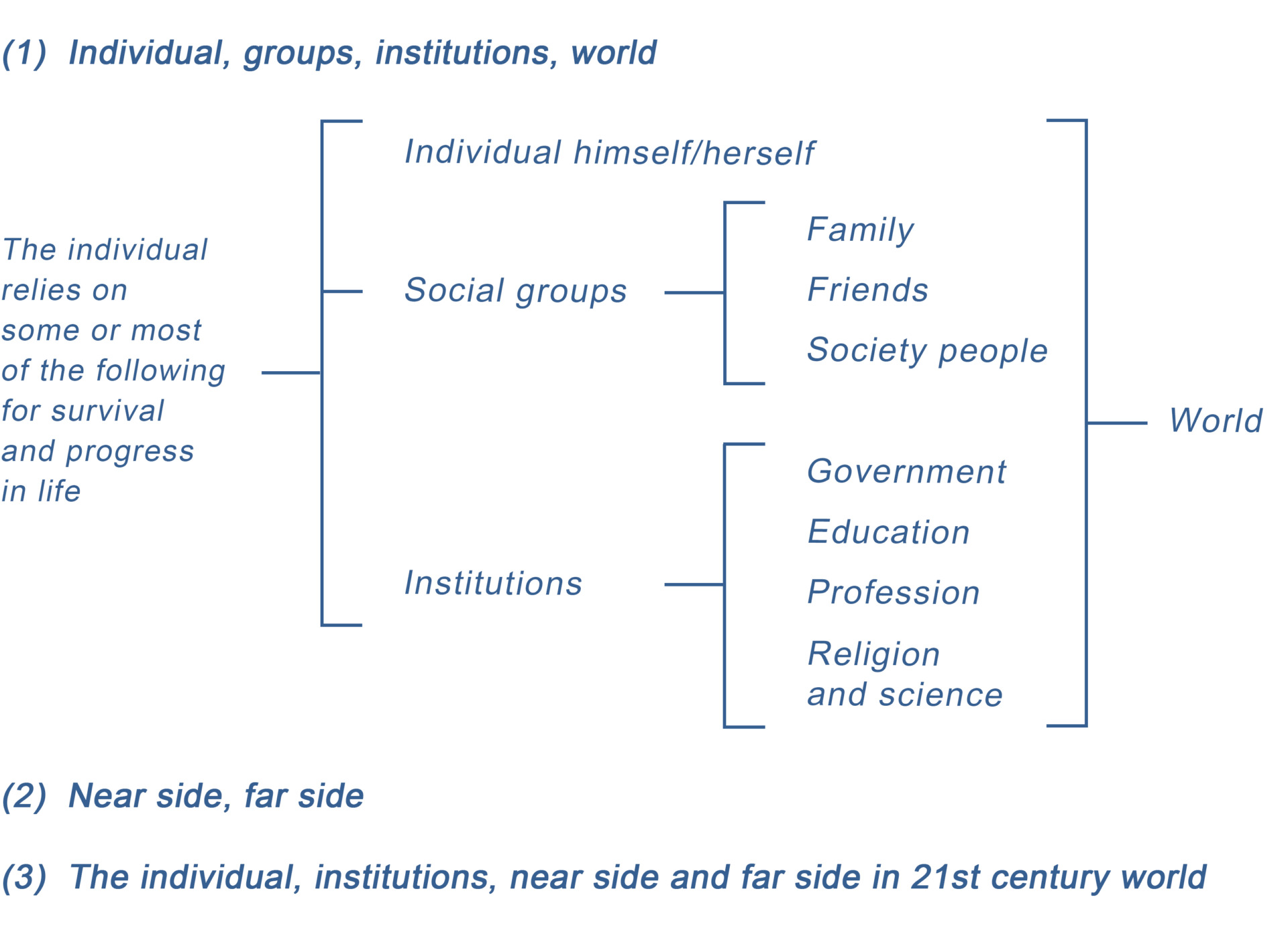
Individual
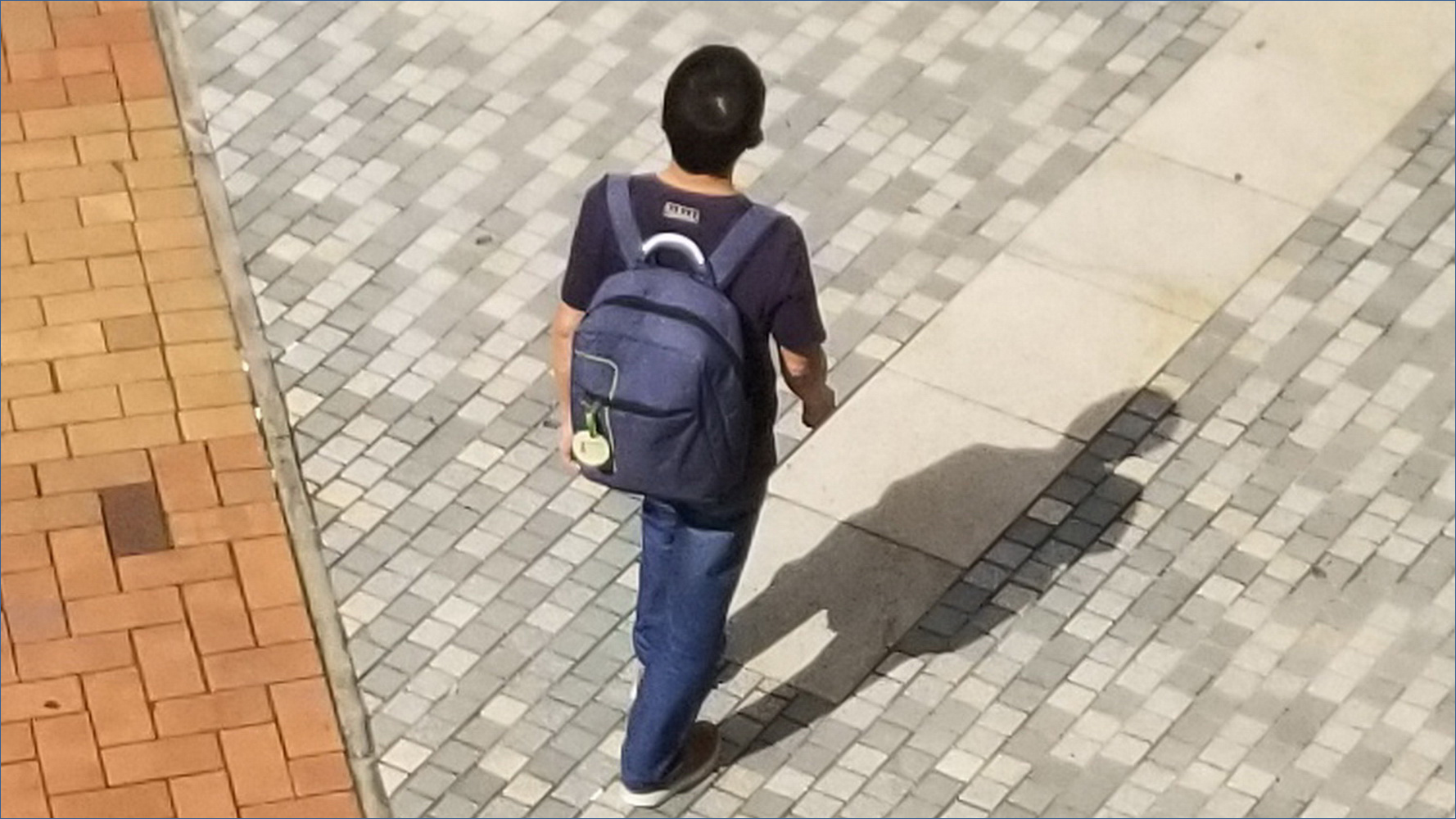
In this article, we look at an individual person’s body/life as comparable to a car. What drives the car is the person’s consciousness. If a person drives his or her car — body/life — well, his or her car/body/life will head to a good destiny. If the person drives the car negligently, the person’s life suffers.
In every person, the person’s consciousness directs, more than exterior circumstances, the person’s life.
Consciousness can change, which subsequently will modify the person’s life and fortune.
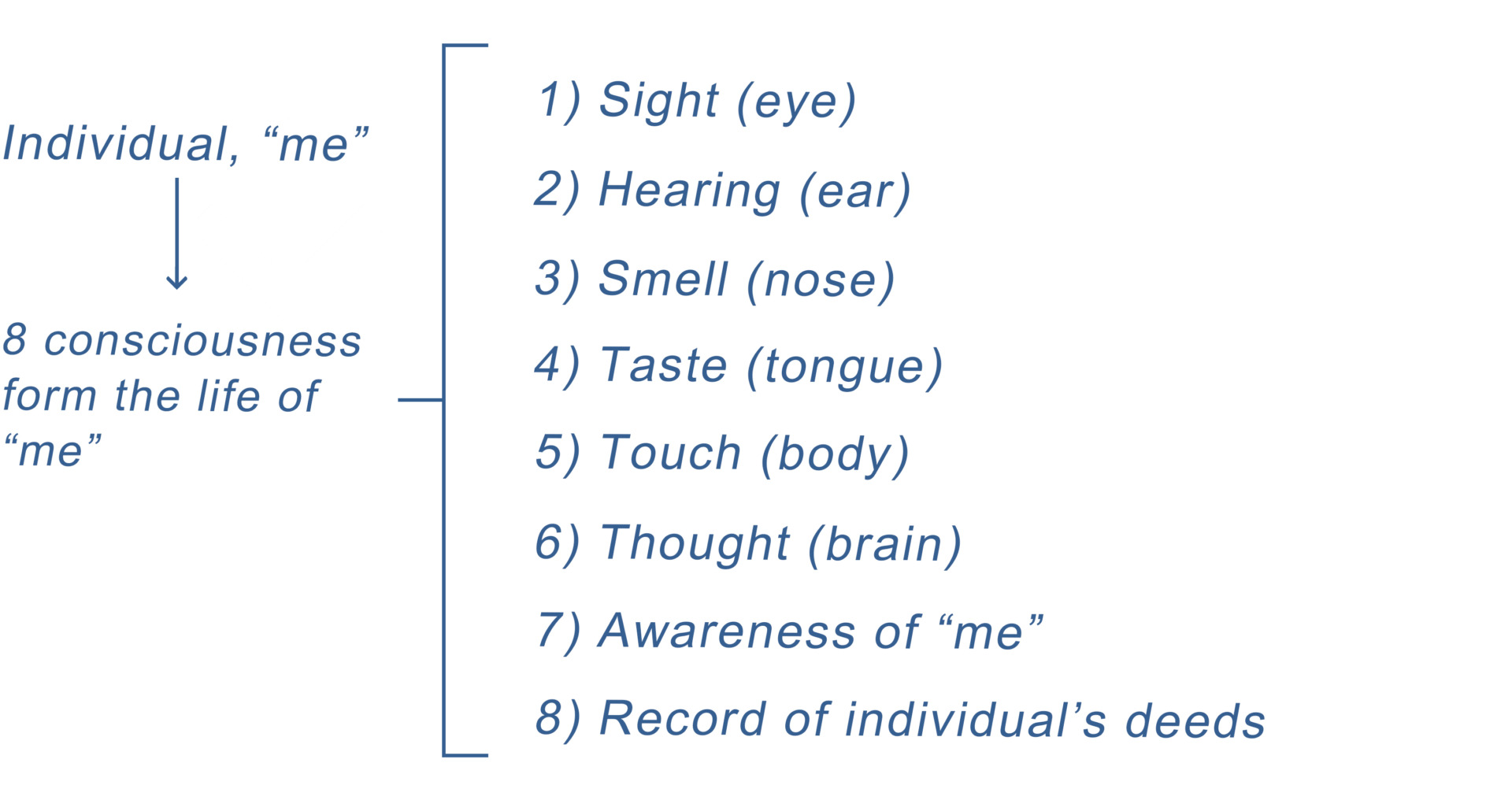
The individual “me” — personal character
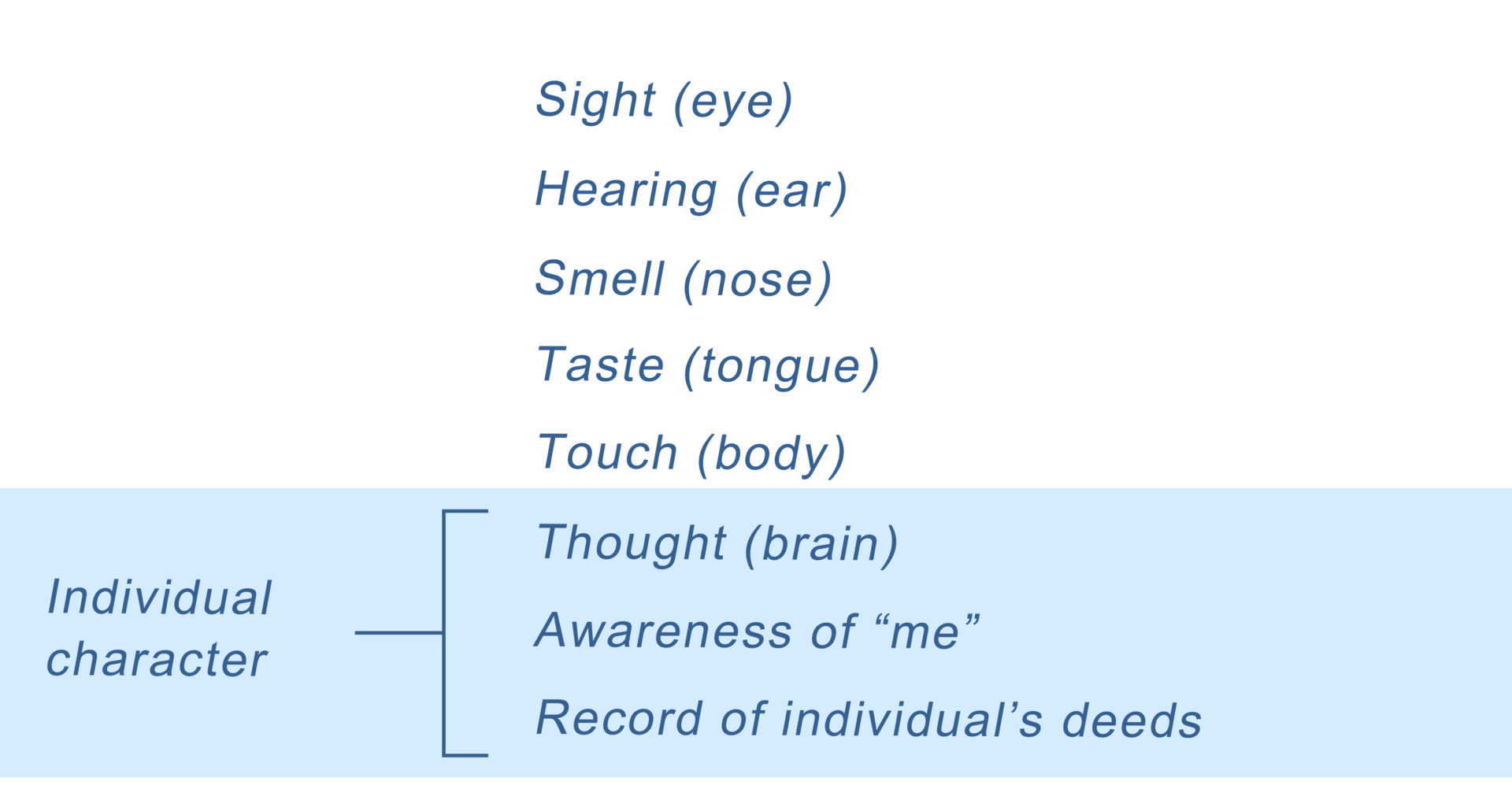
We can argue that a person’s character — what makes the person uniquely him/her — is importantly of 3 things: his/her personal thoughts; his/her awareness of “me”; the record of the person’s past thoughts and deeds. For better or for worse, these 3 traces form the character of a person.
How an individual changes himself/herself and the world
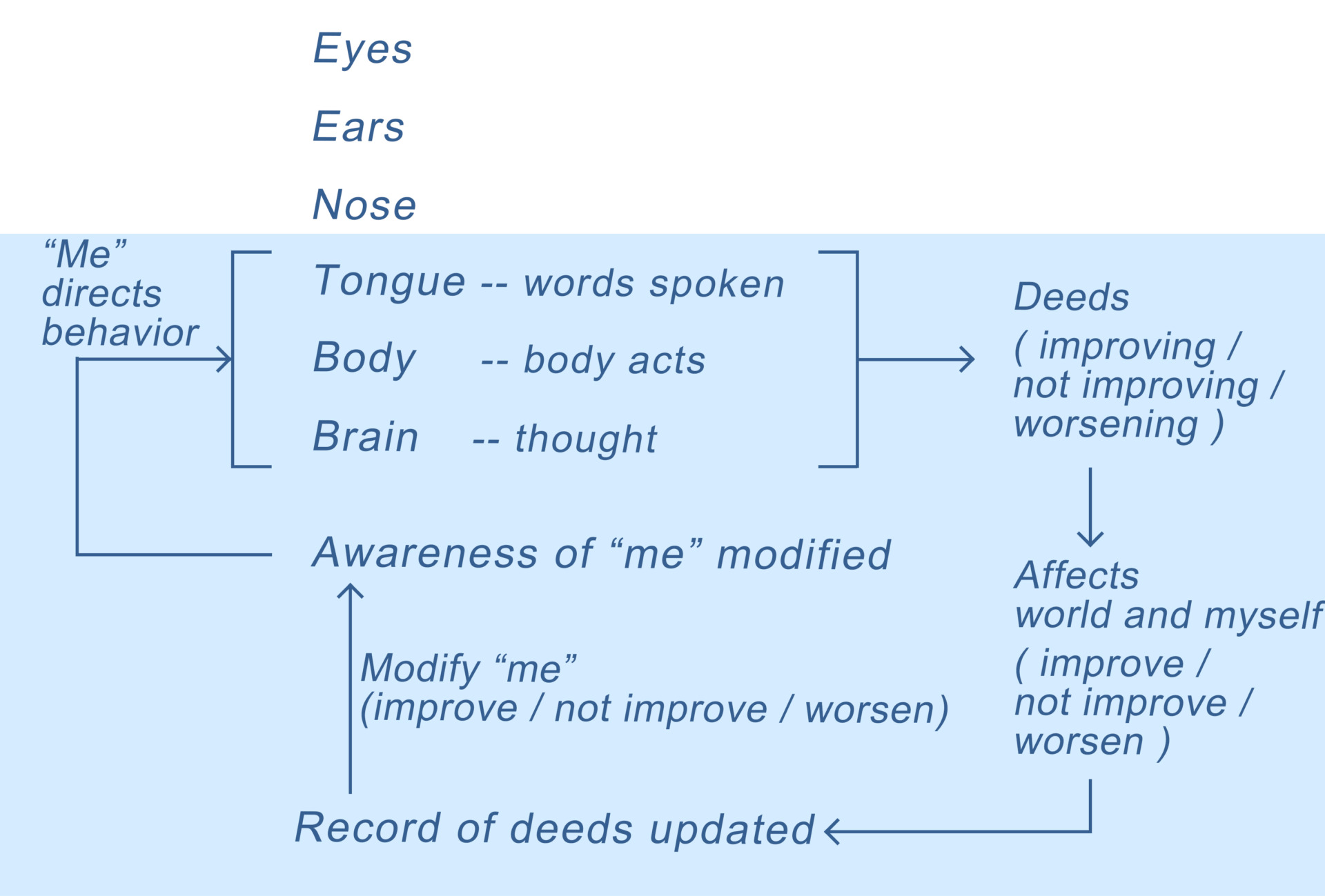
The 3 things that importantly form a person’s character — personal thoughts, awareness of “me”, record of past thoughts and deeds — can be changed. More than this, the 3 things are connected to each other, and more than this, they affect the individual’s life and fortune. And more than this, they — a person’s character — affect the world. All these are connected to each other in an important way.
If we talk about maturity, a person who attains maturity must have understood the relations in the diagram above — thoughts, words spoken, body action, resultant deeds, how these affect the world and oneself, how they also become a person’s character and identity. If a person adjusts their thoughts and deeds in a positive way, no matter how small, the person’s mark is changed in a positive way. This is how a person progresses to a better person, and a better life, by accumulated repeat of improved thoughts and deeds, many times in incremental steps.
Groups
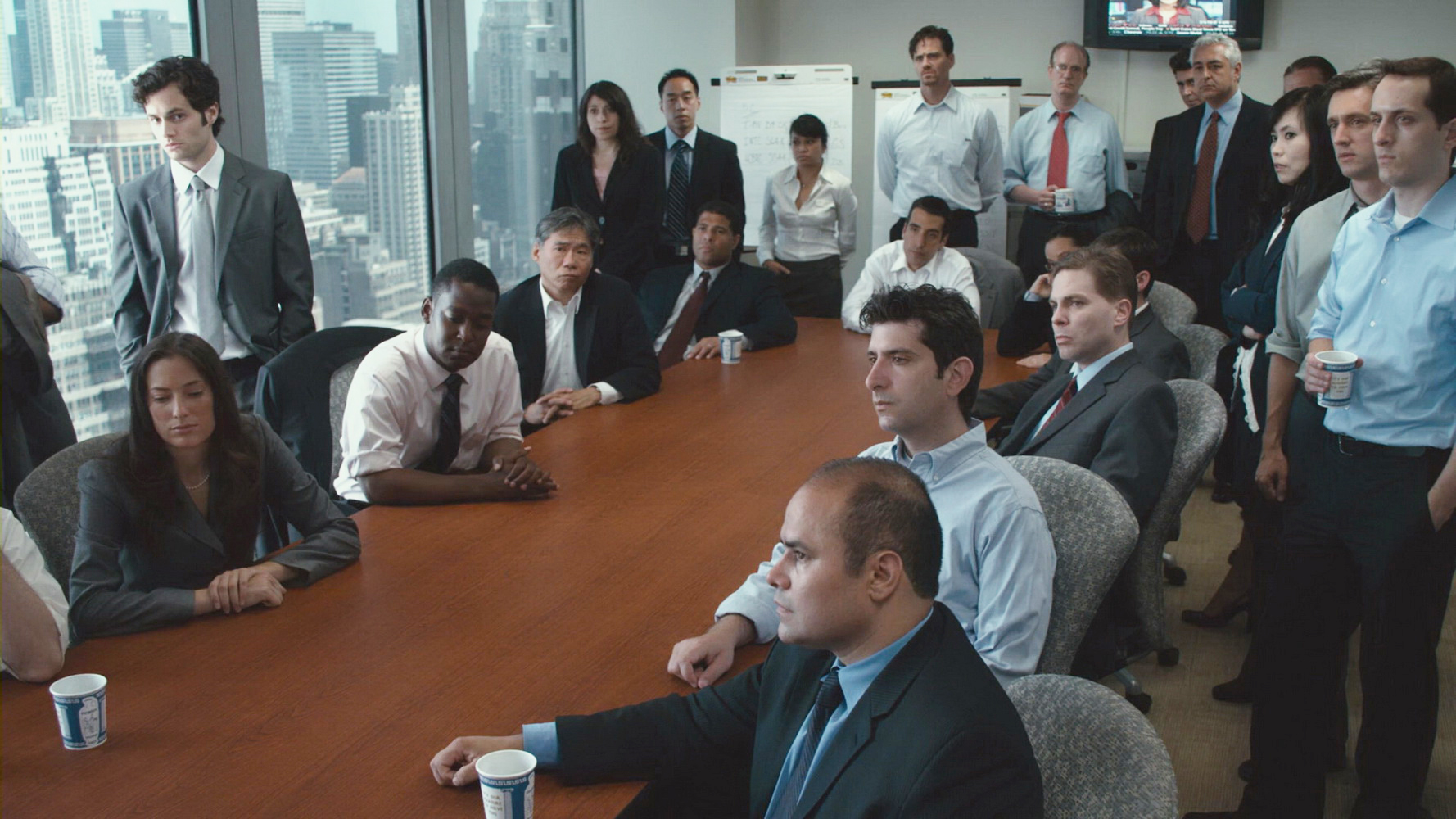
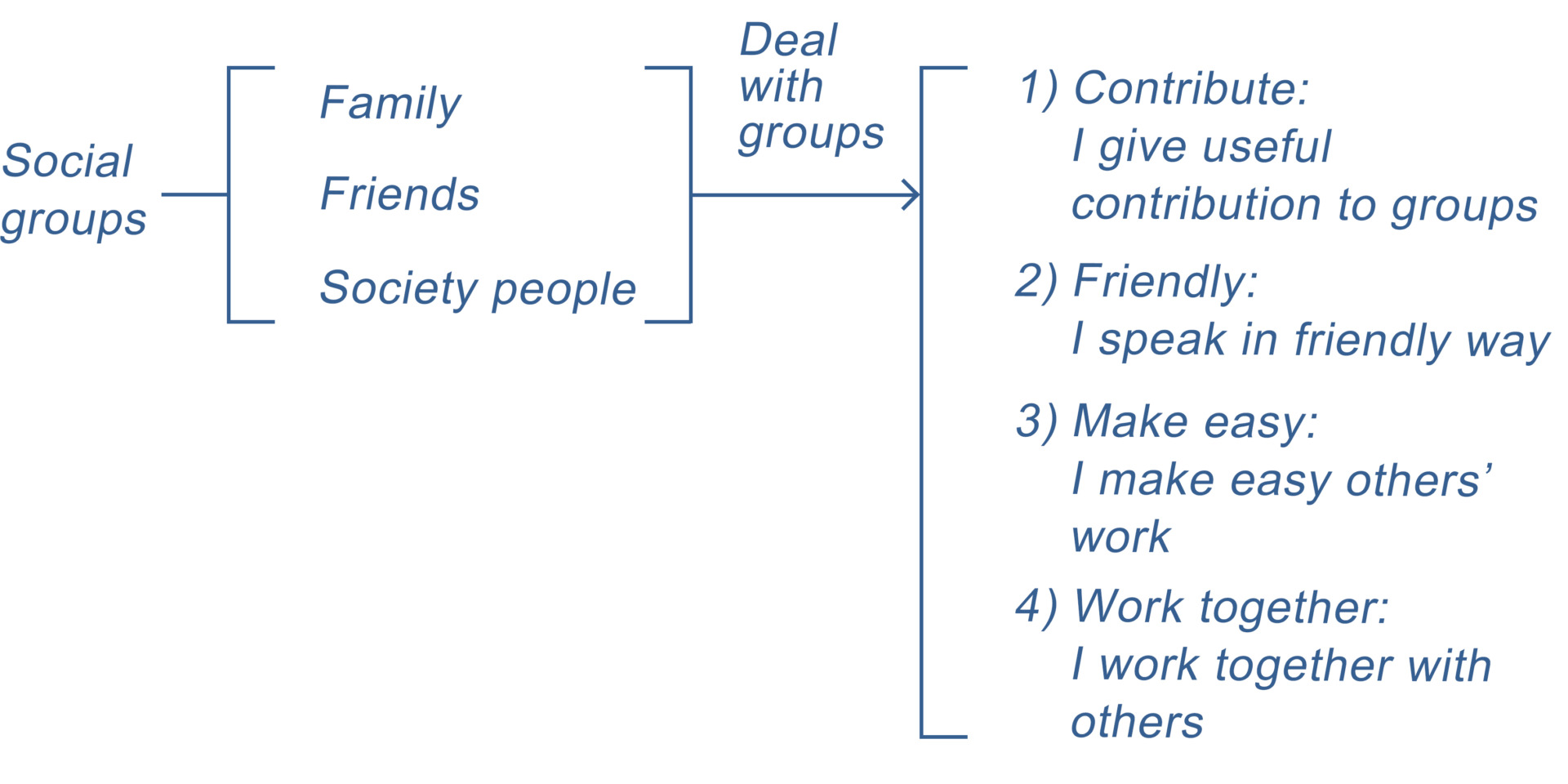
Social groups — family, friends, society people — are loose and quite informal gatherings of people. Loose and informal gatherings let life freely happen, where one may experience happiness, but because life freely happens, one may also experience disappointment.
If we talk about what is to gain from social groups, it is useful to know that because social groups freely happen, there is no guarantee of gain for oneself. In fact, disappointment is quite certain, if one looks for gains from social groups.
But one certain way of gaining from social groups is in fact doing the opposite: not expect gains, but give to social groups (see diagram above).
Institutions
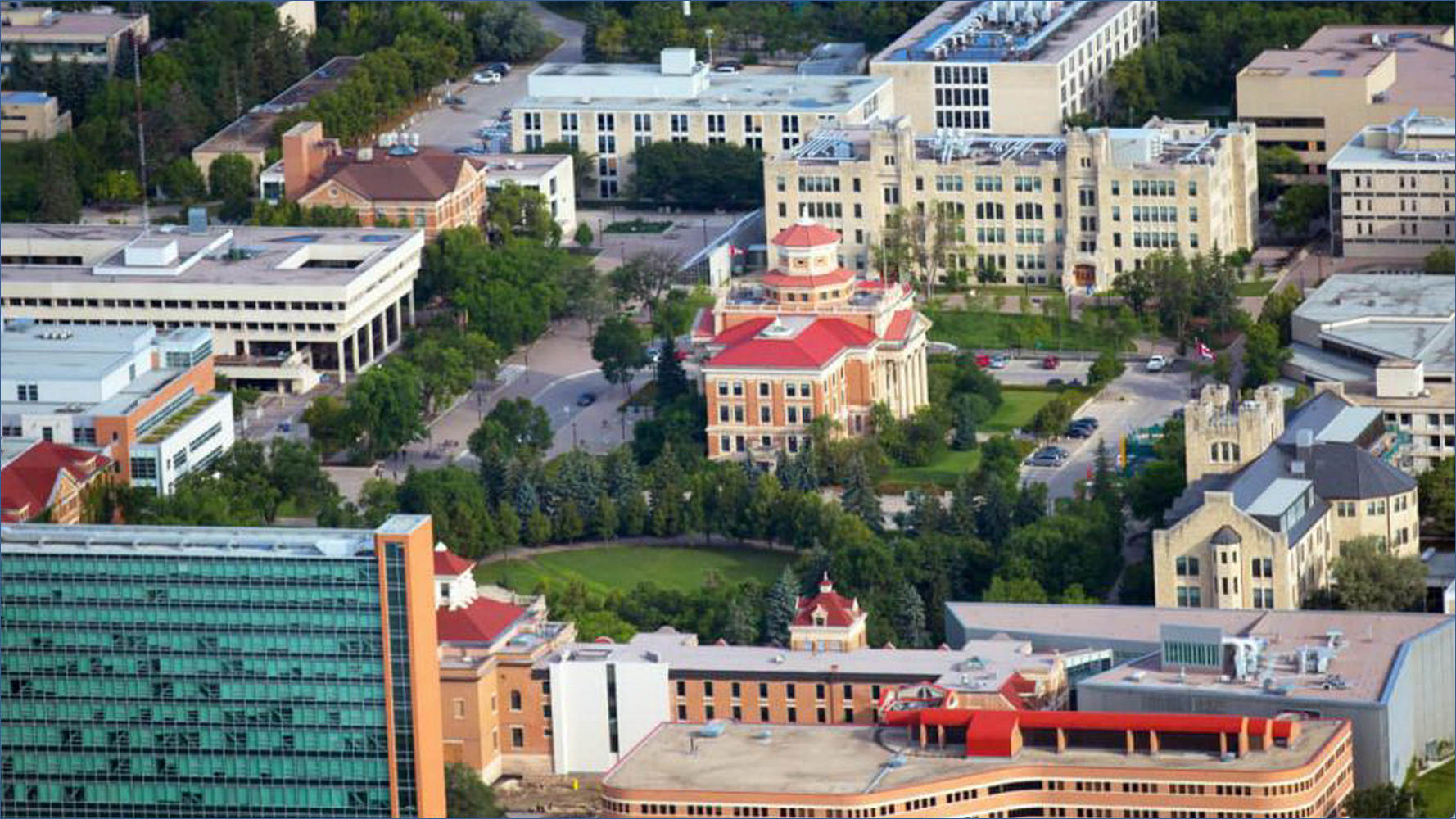

In contrast to social groups which are quite loose and free, institutions are highly structured organizations, with a clear aim to help with people’s welfare. In contrast to social groups in every way, institutions are not loose but highly focused, not free to disappoint but must aim to serve.
In the human world, no individual is totally free of help from institutions, every individual must rely in some way on help from institutions, for survival, let alone success.
Institutions were set up since primordial times when humans realize they could not survive as individuals and must band together, and evolved through long history of trials and lessons. In our modern world, institutions have evolved exponentially since the Age of Enlightenment 400 years ago that give modern people basic protection and prosperity.
We take for granted all the modern life details. When we ride a bus, the bus cannot exist without manufacturing, fuel, transit management; when we use the computer, the computer cannot exist without manufacturing, electricity, internet management. All these are possible only because of society institutions. If society institutions all stop today, humanity will die.
For a modern person’s personal fortune, it is paramount that a person values the education and professional institutions specifically set up for his/her benefit. A person’s life is more than institutions. But success in education and professional institutions means defining fortune for a person’s life.
Government, education and profession institutions manage immediate human lives that can be measured, and work quite successfully with highly structured aims. But religion and science are beyond immediate human lives, and especially religion cannot be measured, cannot be definite with human consciousness. Similar to human social life, these are best in loose and free organization, and best for humanity development, allowing continued human exploration. Science institutions work successfully like this, in loose and free organization. In religion, Buddhist organizations also work well in loose and open-ended organization.
But not for the Catholic religion institution. The Catholic institution, Catholic Church, was set up in the 1st century in the ancient Roman Empire, and followed the Roman Empire authoritarian organization system. The Catholic Church also declared in the 4th century that Catholic rules are eternal. The European Age of Enlightenment happened 400 years ago largely to refute this. In mid-20th century the Catholic Church convened the Second Vatican Council in moderate adjustment towards modern human civilization, but the Catholic institution is too bound by its own doctrine to give de facto lead of modern humanity. Today the Catholic Church institution shares co-existence uneasily with modern humanity. The church institution is successful providing many humanitarian aid works, and paradoxically these humanitarian works are loosely and freely organized, in contrast to the central unchangeable church dogma.
Near side, far side

In one sentence, the 1902-1932 United States Supreme Court Justice Oliver Holmes Jr. described a critical human problem: “I would not give a fig for the simplicity this side of complexity; but I would give my life for the simplicity the other side of complexity.” What this means:
The far side, “the other side”, means in-depth knowledge of complexity that approaches a true picture, stated in simplified language.
The near side, “this side”, means easy effort and crude simplifications that leaves out deeper facts, in other words, ignorance.
We like simple language that gives us a full picture, but most people fall for simplicity on the near side for easy effort. The result is common ignorance evident in the common world.
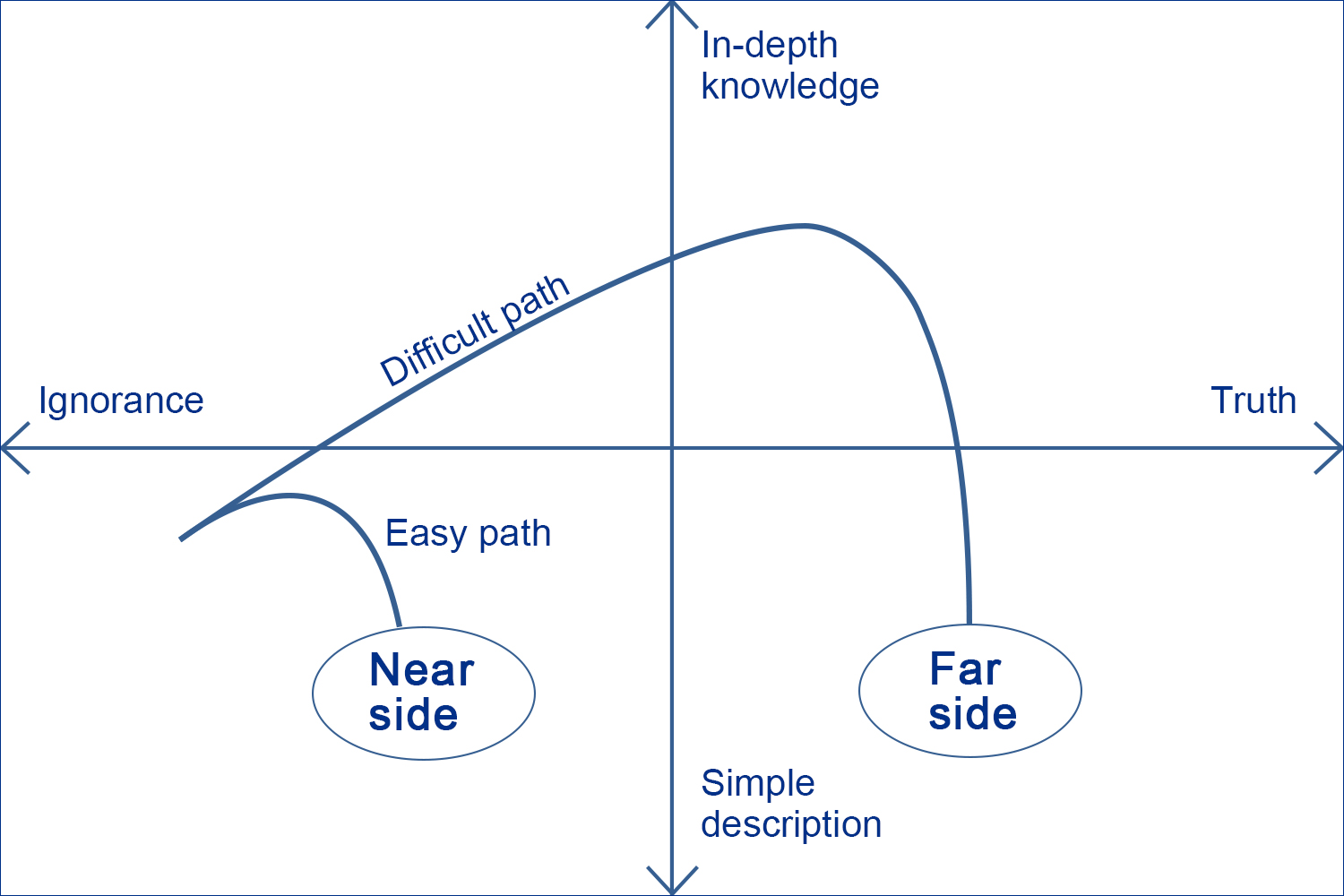
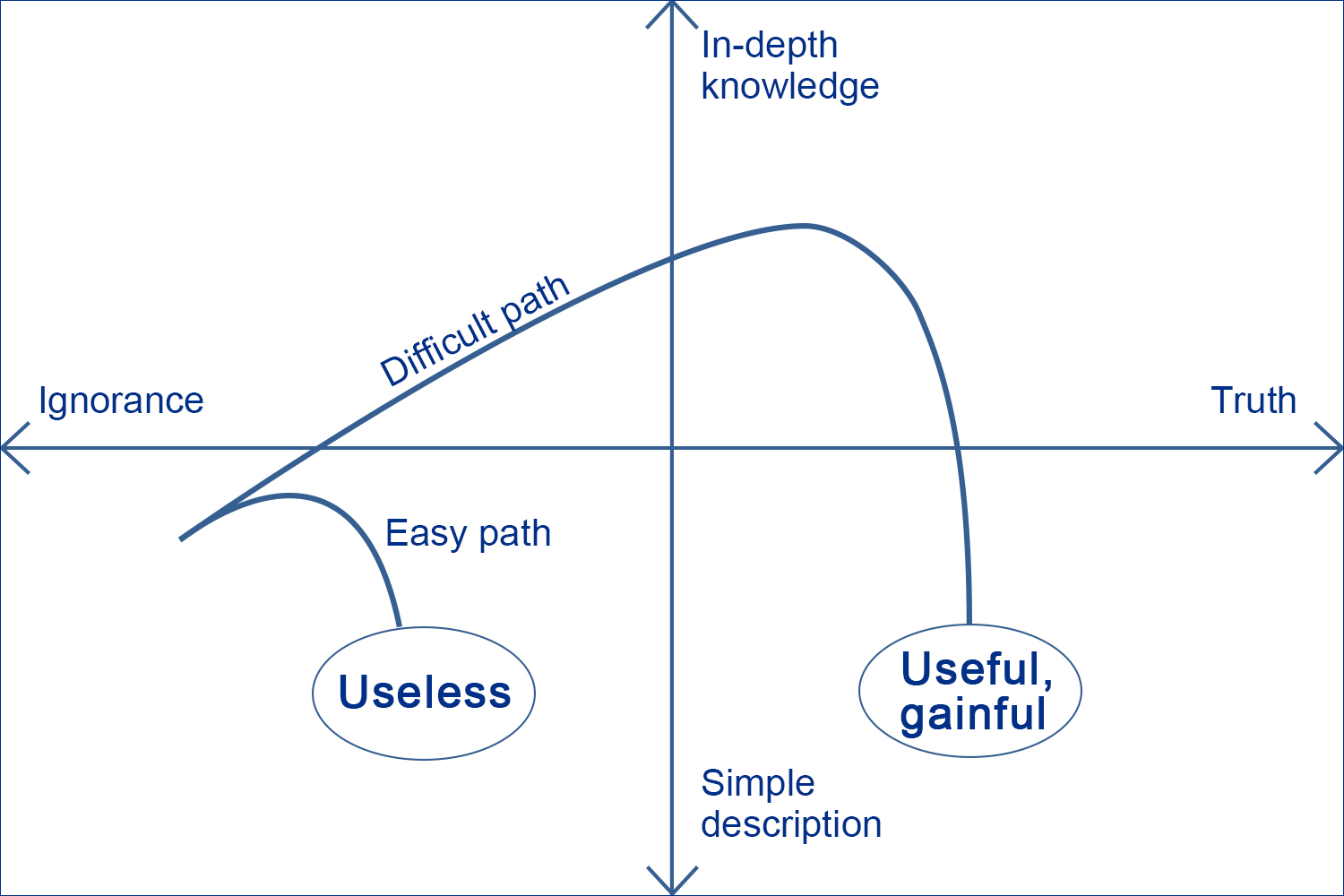
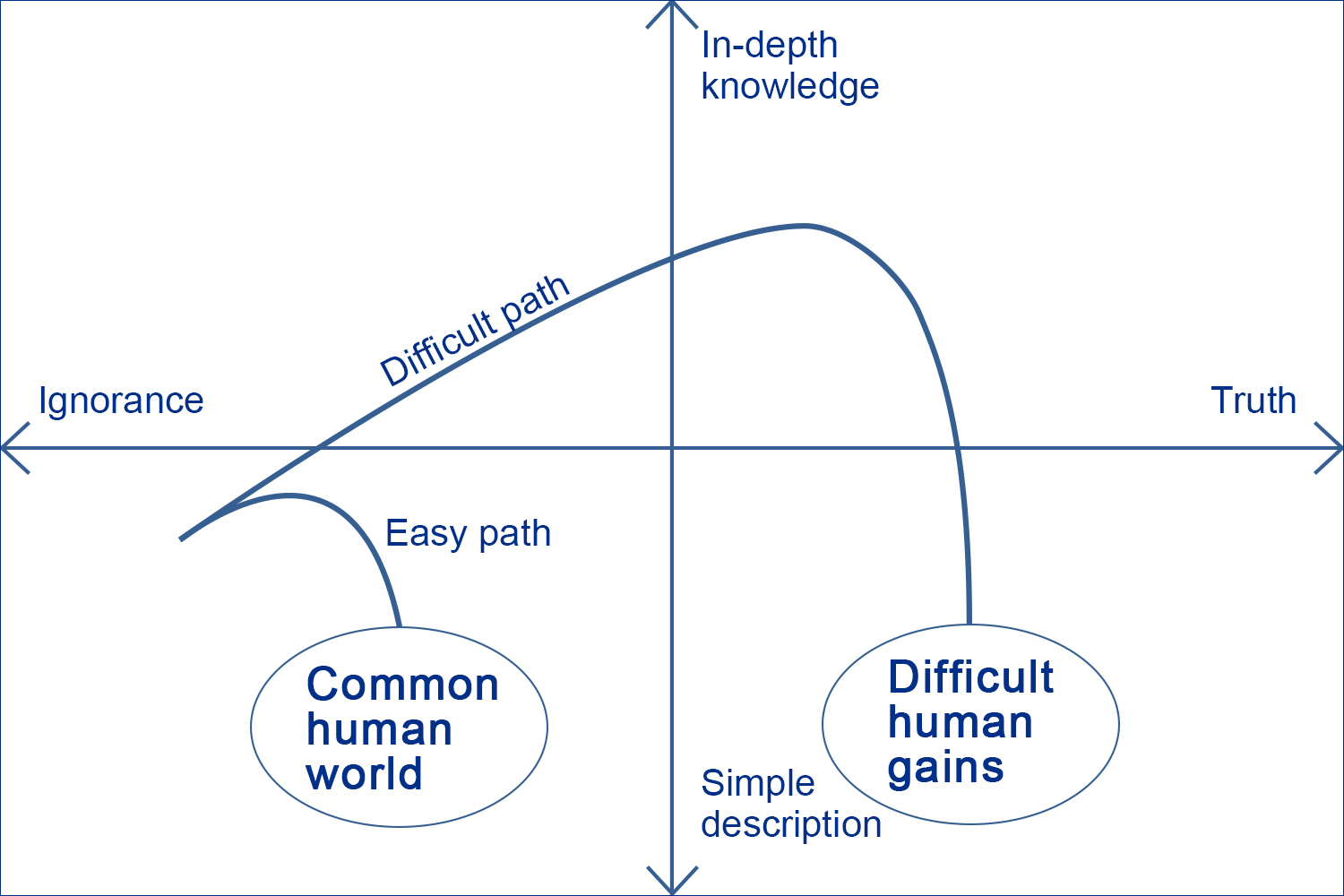
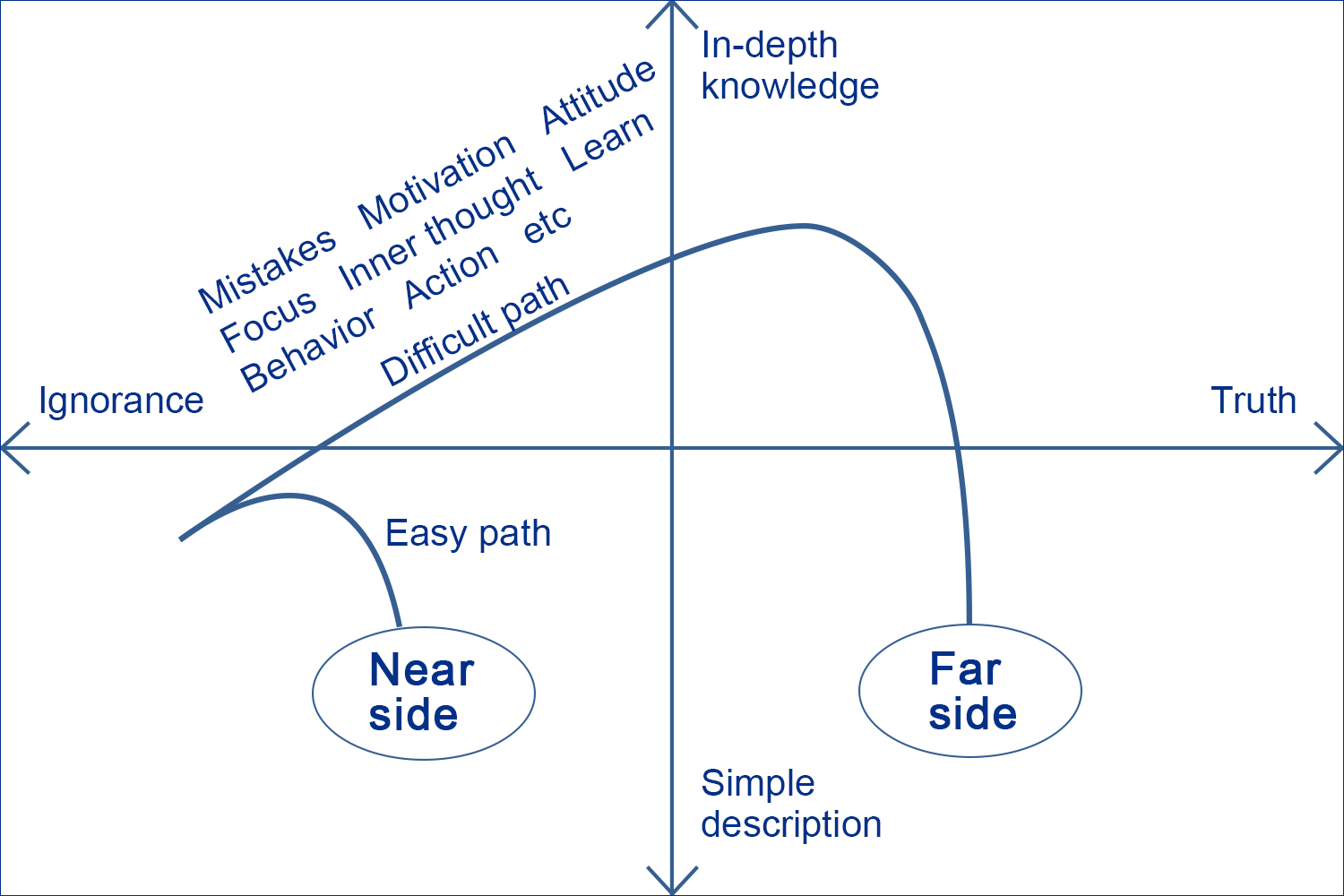
Near side — freedom, inadequate awareness, consequences
If we reflect, we are against astronomical odds, extremely lucky to come to this planet, of beautiful sky, sea, land, meadows and mountains, with enough rich material to give a good life to every living being. On top, we are extremely lucky to come as humans with brains, with capacity to plan our lives, with capability of awareness. On top is the extremely rare gift, we have the freedom in large measure in this beautiful world to choose our life paths.
There is one, and only one, contradiction. It is that we humans come here with our character — an inadequacy in awareness.
When we are newly born as babies, it is assumed that we know nothing, maybe except cry and look for mother. But maybe that is not completely true, maybe we are born with a seed of personal character in us.
In this modern world we are all sent to school for at least 10 years, some for 15 years or more, where education institutions do their best to teach us knowledge.
But education institutions can only go so far to teach us general knowledge, and specialist professional knowledge. Education institutions cannot teach us awareness in our hearts.
The awareness in our hearts comes with our inside. When we enter adulthood, i.e. gain power to affect the world, there is a saying, “Power does not improve a person, power amplifies the content of the person.” It is at that stage a person’s awareness, or inadequate awareness, transforms into real effects on the world. Most common is a person’s sense of “I” becomes dominating, i.e. ego, but the person is not beyond common ignorance. In result, the human world and the planet Earth are polluted by human ignorance.
The individual, institutions, near side and far side in 21st century world
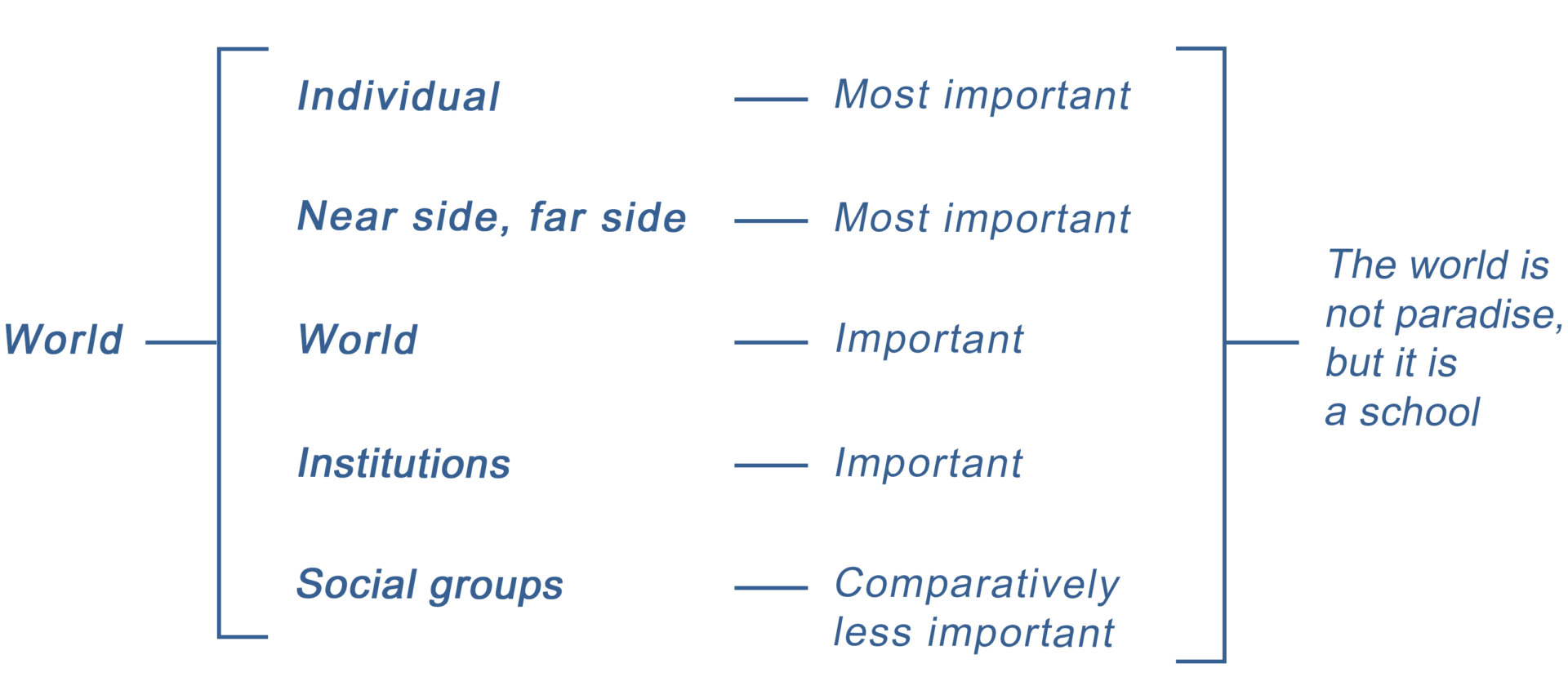
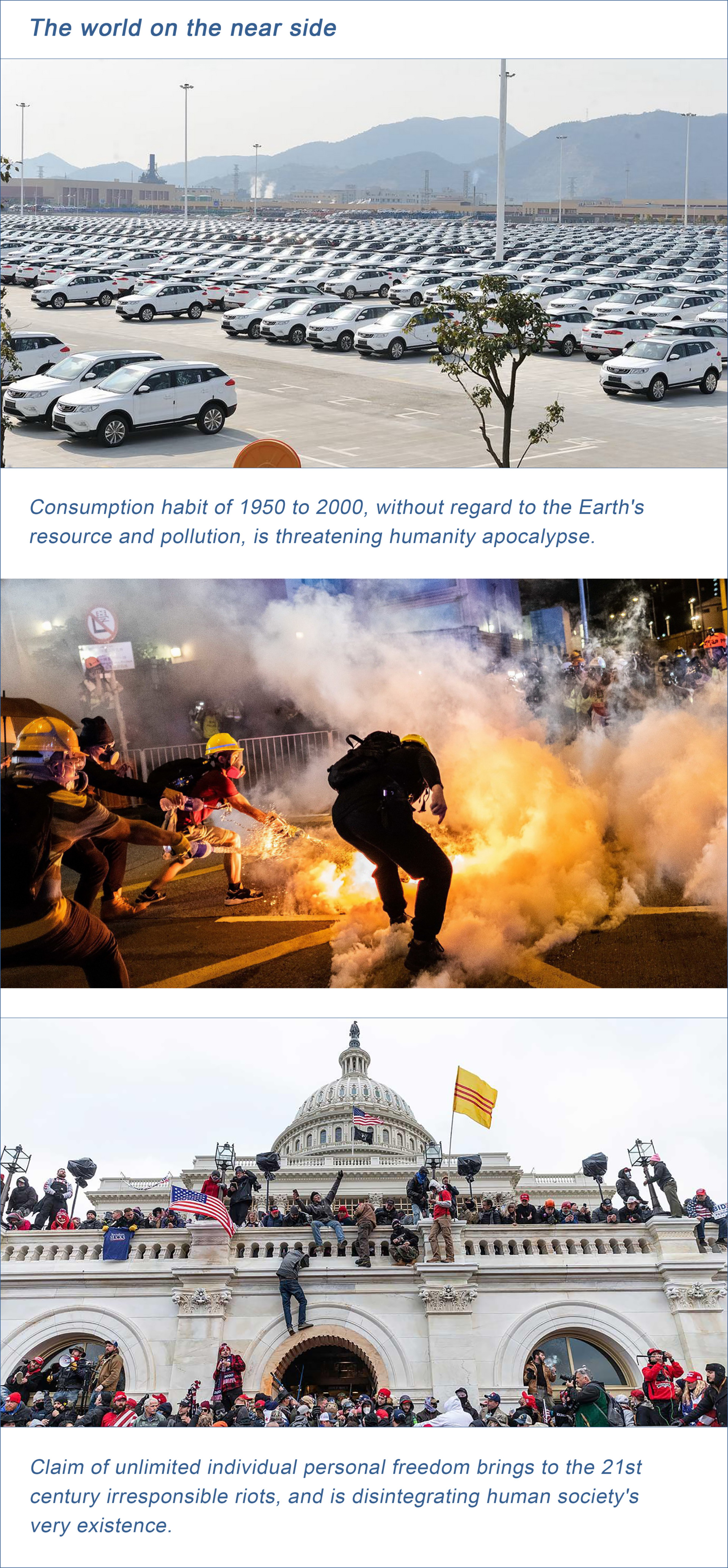
As iterated in the beginning of this article, the 21st century human world is no longer the free spending easy life of the 20th century second half. More insistence of people on that era will result in more near-side catastrophe, and on a global Earth scale.
The problem began with inadequate awareness of humans, and responsibility will always be on the lap of the human individual (see “Individual” and “Near side, far side” above.)
In the long view, a life of desire indulgence and lazy awareness is not a truly happy life, either in the 21st or 20th century. The challenge a 21st century person finds is not misfortune, it is the big universe messaging a person, there are lessons valuable to the person, waiting to be learned. The lessons to be learned are a valuable gift.